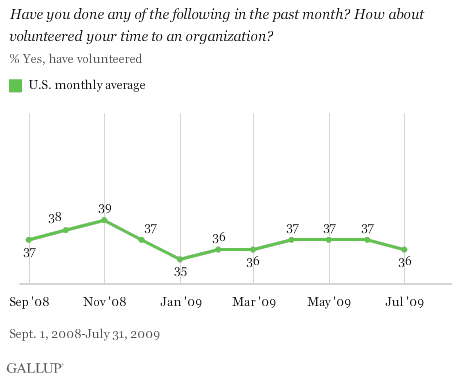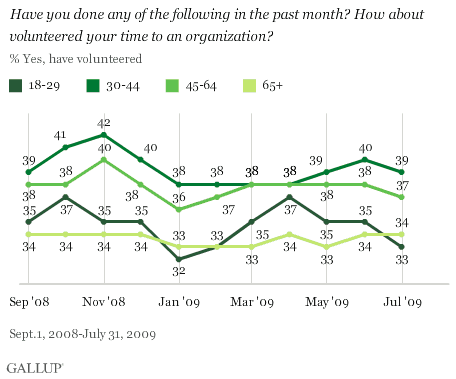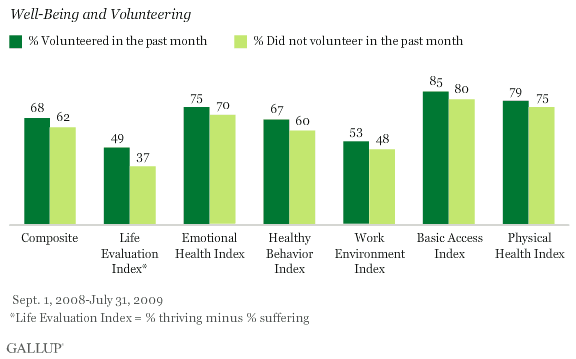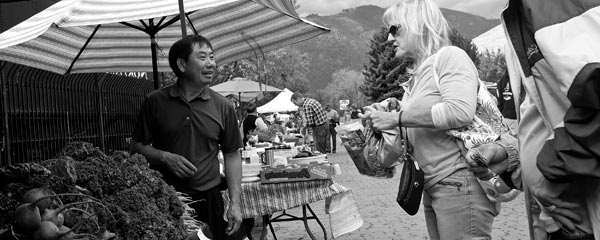WASHINGTON, D.C. -- During the economic downturn of late 2008 and the first half of 2009, Americans continued to volunteer their time to others. According to a recent Gallup survey, more than one-third of Americans reported volunteering recently in each month from September 2008 to July 2009.

Service through volunteering increased slightly during the early months of the recession, October and November of 2008, decreasing through December 2008 and January 2009 and stabilizing over the course of 2009. The findings extend the stable volunteering trend from 2002 through 2008 reported by the Corporation for National and Community Service.
Volunteering varies by age, with Americans aged 30 to 44 consistently the most active, or tied as the most active. Seniors (aged 65 and older) and young adults (18- to 29-year-olds) tend to be the least active.

Volunteering and Wellbeing
Generally, people who say they volunteered in the last month also experienced higher personal wellbeing, garnering higher scores on all six Gallup-Healthways Wellbeing sub-indexes than those who did not say they volunteered. The wellbeing gap between those who say they volunteer and those who do not was largest on the Life Evaluation Index, at 12 points. The Life Evaluation Index is based on the Cantril Self-Anchoring Striving Scale, which asks people to evaluate their present and future lives on a scale with steps numbered from 0 to 10, where 0 is the worst possible life and 10 is the best possible life. Those who rate today a "7" or higher and the future an "8" or higher are considered to be "thriving." Those who rate today and the future a "4" or lower on the scale are considered to be "suffering." The relationship between wellbeing and volunteering holds across all age groups.

Bottom Line
According to the Center for Civil Society Studies, nonprofit organizations reported a greater need for volunteers during the recent economic recession. During this time, Americans continued to offer their time to organizations. More than one-third of Americans nationwide reported volunteering recently, with more 30- to 44-year-olds reporting volunteering than people in other age groups. People who report volunteering also report high wellbeing, yet it is unclear whether volunteering leads to high wellbeing or if high wellbeing facilitates volunteering behavior.
Learn more about the Gallup-Healthways Well-Being Index.
Sign up for Gallup e-mail alerts or RSS feeds
Get Gallup news on Facebook and Twitter
Survey Methods
Results are based on telephone interviews with 139,954 national adults, aged 18 and older, conducted from September 2008-July 2009. For results based on the total sample of national adults, one can say with 95% confidence that the maximum margin of sampling error is ±0.3 percentage points.
Interviews are conducted with respondents on landline telephones (for respondents with a landline telephone) and cellular phones (for respondents who are cell phone only and cell phone mostly).
In addition to sampling error, question wording and practical difficulties in conducting surveys can introduce error or bias into the findings of public opinion polls.
